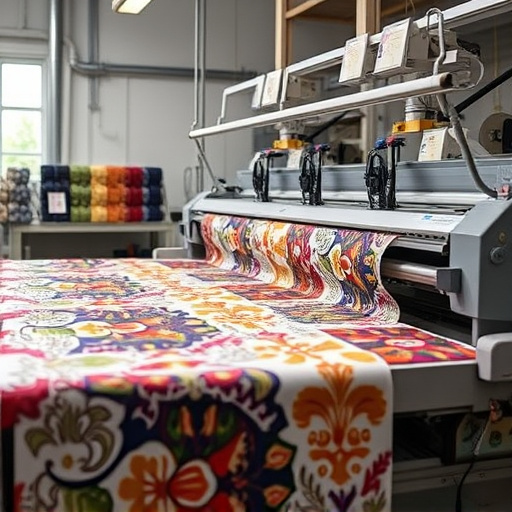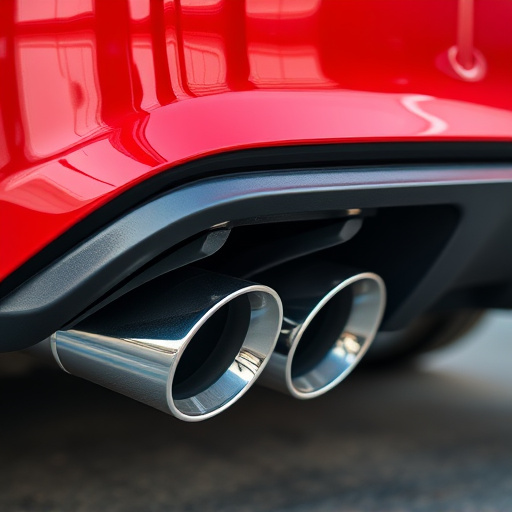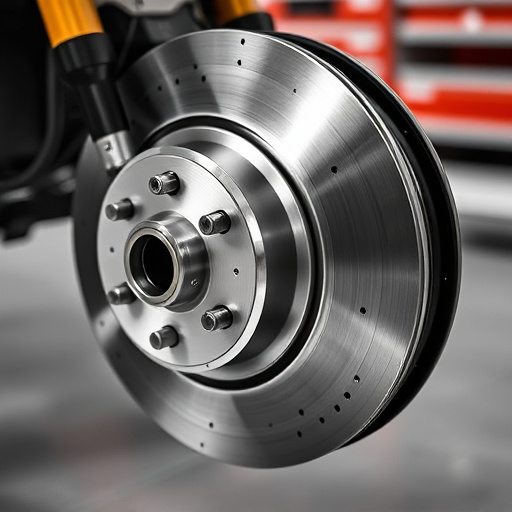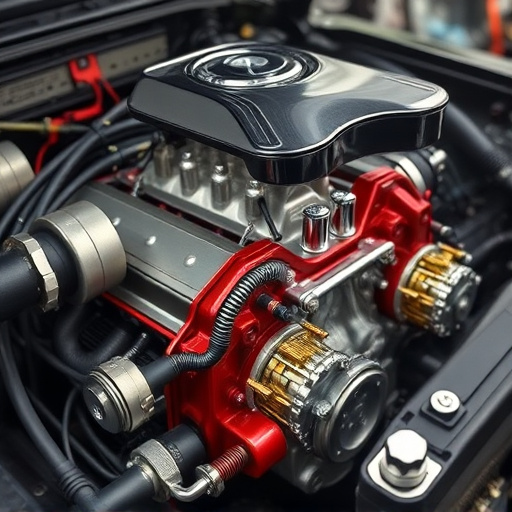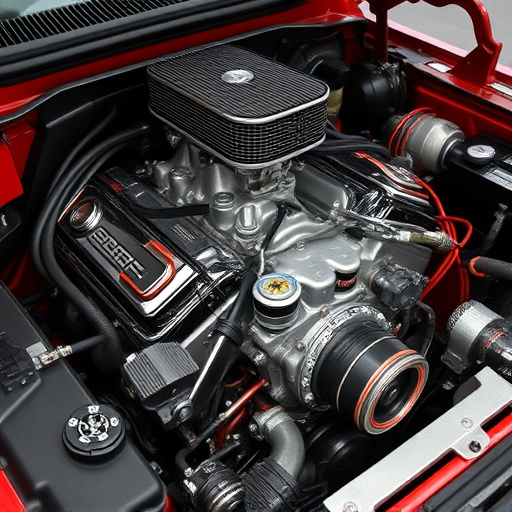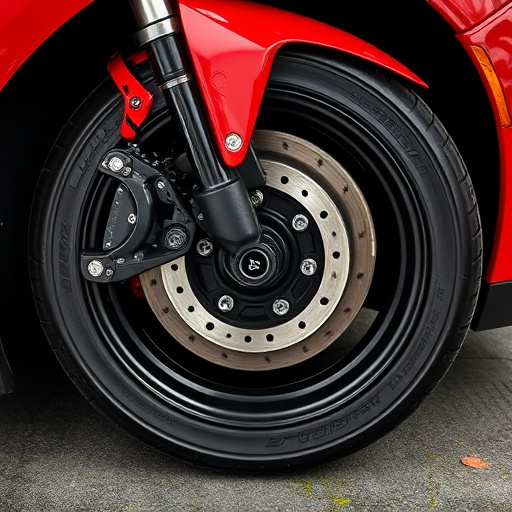The car suspension system is vital for vehicle performance and safety but poses environmental challenges due to resource-intensive production and disposal. Recycling traditional metal components is complex and costly, hindering sustainable practices. However, a growing focus on sustainability in the automotive industry promotes recycled materials, circular economy models, and advanced recycling technologies, with coilover kits and efficient exhaust systems offering potential environmental benefits.
The car suspension system, a critical component for safety and comfort, significantly influences vehicle performance and environmental impact. As global awareness of sustainability grows, understanding the ecological footprint of these systems and exploring recycling options becomes essential. This article delves into the functions of car suspension systems, their environmental implications, and the challenges associated with recycling common materials. We also examine promising sustainable alternatives and available recycling options for these vital automotive parts.
- Understanding Car Suspension System Functions and Environmental Impact
- Common Materials Used in Suspension Systems and Recycling Challenges
- Exploring Sustainable Alternatives and Recycling Options for Car Suspensions
Understanding Car Suspension System Functions and Environmental Impact
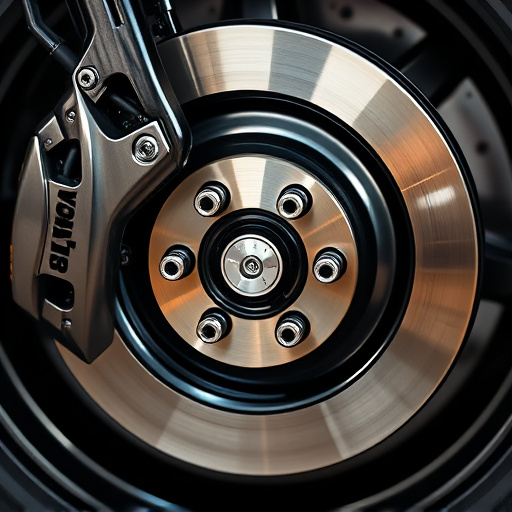
The car suspension system plays a crucial role in ensuring optimal vehicle performance and safety by providing smooth rides and precise handling. It connects the vehicle’s chassis to its wheels, facilitating communication between them and enabling efficient control over steering, braking, and acceleration. Modern suspension systems are meticulously engineered to balance comfort, stability, and responsiveness, enhancing driver confidence and overall vehicle dynamics.
However, like many automotive components, the environmental impact of car suspension systems cannot be overlooked. Traditional suspension components often contain materials such as steel, aluminum, and rubber, which can have significant ecological footprints during their production and disposal. For instance, the manufacturing processes involved in creating muffler tips, air filter kits, or other suspension parts contribute to greenhouse gas emissions and resource depletion. Moreover, end-of-life considerations are vital, as inappropriate disposal of these components could lead to soil and water contamination due to leachable toxic substances.
Common Materials Used in Suspension Systems and Recycling Challenges
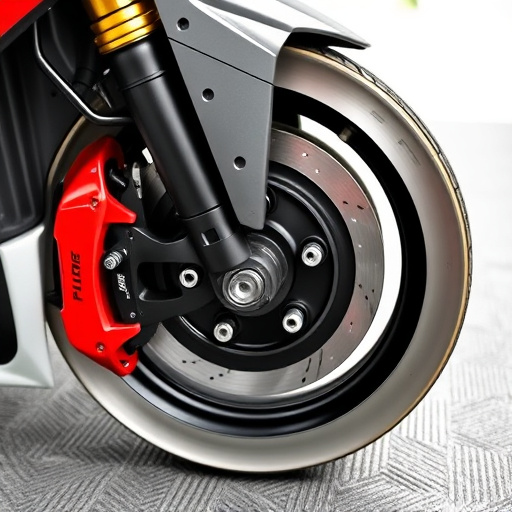
The car suspension system is a complex network of components, primarily crafted from metals like steel and aluminium. These materials are chosen for their strength, durability, and ability to withstand the rigours of daily driving. However, the environmental impact of these metal components is significant due to the energy-intensive processes required for extraction, refining, and manufacturing.
Recycling these car suspension parts presents unique challenges. While metals can be recycled infinitely without loss of quality, the process often requires sophisticated technologies and infrastructure. Moreover, the disassembly and segregation of various parts, especially in modern vehicles with advanced suspension systems, can be intricate. This complexity increases recycling costs and reduces the likelihood of materials being salvaged and reused effectively. Components like air filter kits, coilover kits, and brake pads, while not directly part of the suspension structure, contribute to these challenges due to their integrated nature within the system and the need for proper disposal or recycling when they reach the end of their useful life.
Exploring Sustainable Alternatives and Recycling Options for Car Suspensions
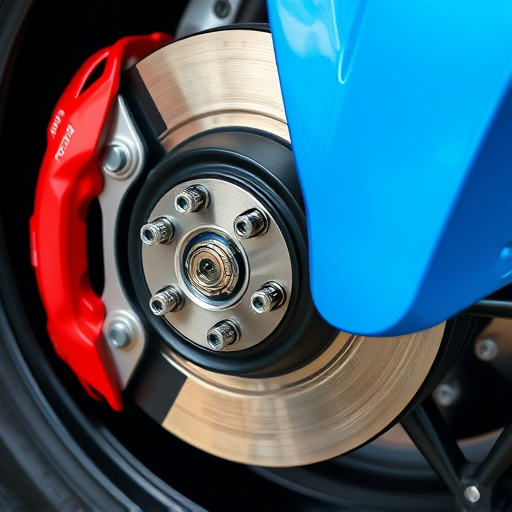
The automotive industry is increasingly focusing on sustainability, and car suspension systems are no exception. As consumers become more environmentally conscious, there’s a growing demand for eco-friendly alternatives to traditional suspension components. This shift isn’t just about reducing carbon footprints; it also involves exploring materials that can be recycled or reused, fostering a circular economy within the industry. One notable area of interest is the transition from conventional spring and shock absorbers to advanced options like coilover kits, which offer enhanced performance while potentially reducing the environmental impact.
These coilover kits, often paired with efficient exhaust systems such as cat-back exhausts, can contribute to a more sustainable automotive landscape. By utilizing recycled materials and implementing innovative design strategies, manufacturers can produce car suspension systems that not only perform excellently but also minimize waste. Additionally, proper recycling programs for exhausted components, including catalytic converters and various metal parts, ensure that these resources are recovered and repurposed, reducing the demand for new raw materials.
The car suspension system, while integral to vehicle performance and safety, has historically presented environmental challenges due to the use of non-biodegradable materials. However, with growing awareness of sustainability, there’s a shift towards exploring eco-friendly alternatives and enhancing recycling options for these systems. By understanding the environmental impact and adopting innovative solutions, the automotive industry can contribute to a greener future while ensuring the structural integrity and functionality of cars. This holistic approach to vehicle design and disposal is crucial in mitigating the ecological footprint of car suspensions.







